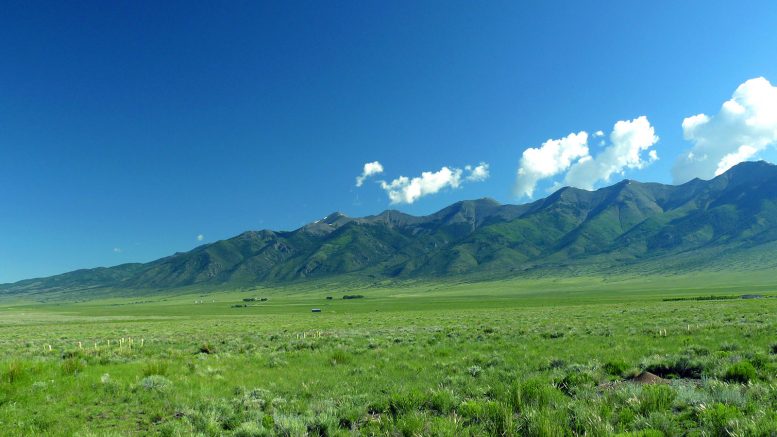During the May meeting of the Upper Arkansas Water Conservancy District, consultant Ken Baker reported on issues relevant to the Doctrine of Prior Appropriation, which provides the framework for Colorado water law.
As former Colorado Supreme Court Justice Gregory Hobbs Jr. states in “Citizen’s Guide to Colorado Water Law,” the prior appropriation system is mandated in the Colorado Constitution as the regulatory framework for state water resources.
Baker, a retired attorney who played a key role in establishing the Upper Ark District in 1979, discussed HB20-1157, which Gov. Jared Polis recently signed into law.
According to the Colorado General Assembly website, the bill enables the Colorado Water Conservation Board to use water “loaned” by the owner of a senior water right for five out of 10 years and allows such loans to remain in effect for a total of 30 years.
The website states that the legislation will allow the CWCB to use the water for in-stream flows “for preserving the natural environment of a stream.”
Under the prior appropriation system, water rights are established based on the date the water was appropriated for a beneficial use, like irrigation or in-stream flows.
Users with earlier (more senior) water rights can take water to meet their needs before users with later (more junior) water rights.
In-stream flows were legally recognized as a beneficial use in 1979. Since then, the CWCB has appropriated in-stream flow water rights for thousands of miles of Colorado waterways, but in-stream flow rights remain junior to the vast majority of Colorado water rights.
Given the constitutional authority of the prior appropriation system, Baker expressed concerns about HB20-1157, referencing legal opinions issued by Justice Hobbs, who writes that only previously unappropriated water can be appropriated.
For the Arkansas River basin, Baker noted, “There is no other water to be appropriated.” Therefore, “The bills that are being presented on behalf of the CWCB … ignore the law.”
Baker also discussed a recent Colorado Supreme Court ruling in a San Luis Valley water rights case that involves imported water.
Baker mentioned the 1882 Colorado Supreme Court decision in Coffin v. Left Hand Ditch Co., which confirmed that, under the prior appropriation system, water can be appropriated in one watershed and imported to a different watershed to be put to beneficial use.
The San Luis Valley case, Santa Maria Reservoir Co. v. Jim Warner, involves using water from a “closed basin” watershed to replace losses to the Rio Grande River caused by irrigation pumping.
A water court judge had approved a 2010 plan for a special improvement district to change the use of water imported into the closed basin by the reservoir company in order to replace the Rio Grande water depleted by pumping.
Jim Warner, who ranches in the closed basin, appealed the plan, claiming it would injure his water rights because he would be deprived of return flows from the previous use of the water.
The Supreme Court ruling states, “Because that water is imported water, SMRC is entitled to fully consume all of it. The water would not be in the Closed Basin, much less available for use by Warner … without its importation by SMRC.
“Thus, rather than cause an injury to Warner, the approval of SMRC’s application simply revealed to him that his past use of return flows from SMRC’s imported water in the Closed Basin was a benefit to which he had no enforceable right.”
The court’s ruling highlights an important legal aspect of the current debate about Nestlé Waters North America’s use of Chaffee County groundwater.
Even though Nestlé does not own a senior water right, its use of water imported from the Western Slope as replacement water allows the company to use all of the water it takes from the aquifer.
For additional water news from the Upper Arkansas Water Conservancy District, follow their Local Water News.
- Conservancy districts oppose major water purchase by Aurora - April 15, 2024
- ARWC releases February River Report - March 10, 2024
- State official to discuss water administration changes today in Salida - March 8, 2024




Be the first to comment on "Conservancy district consultant discusses water law issues"